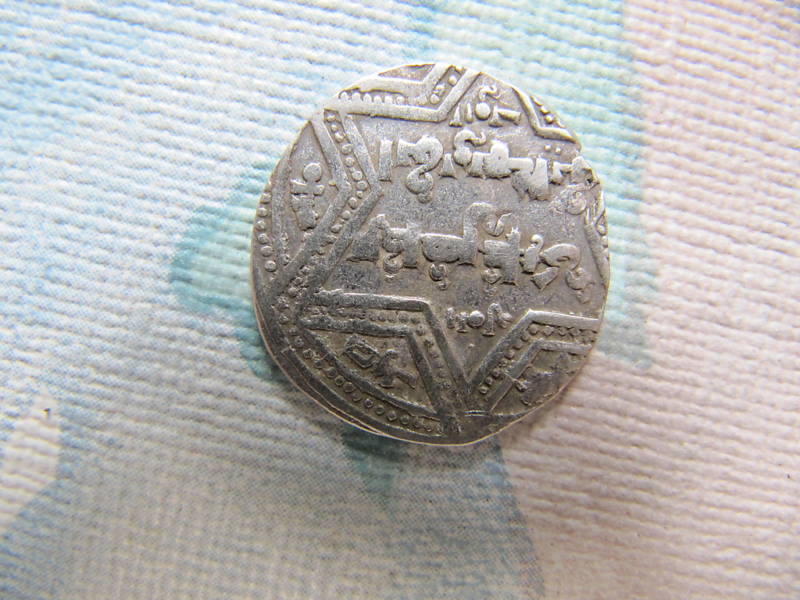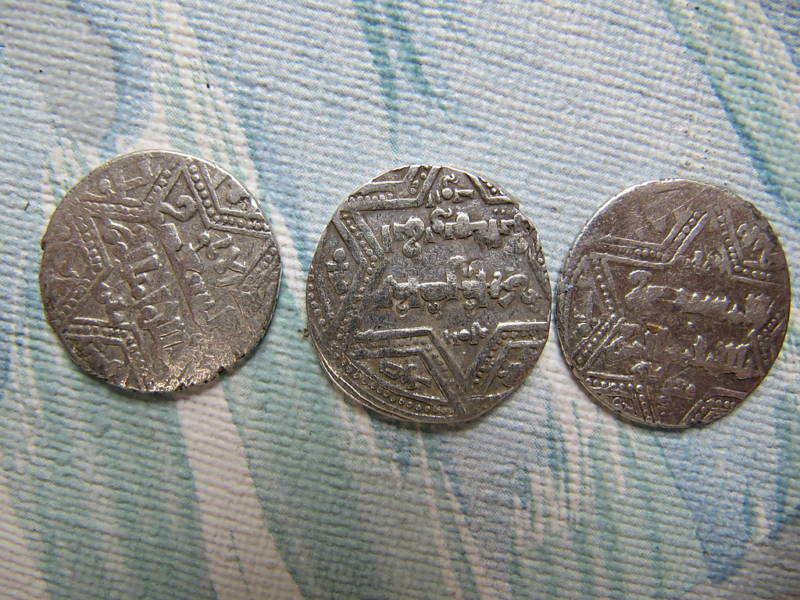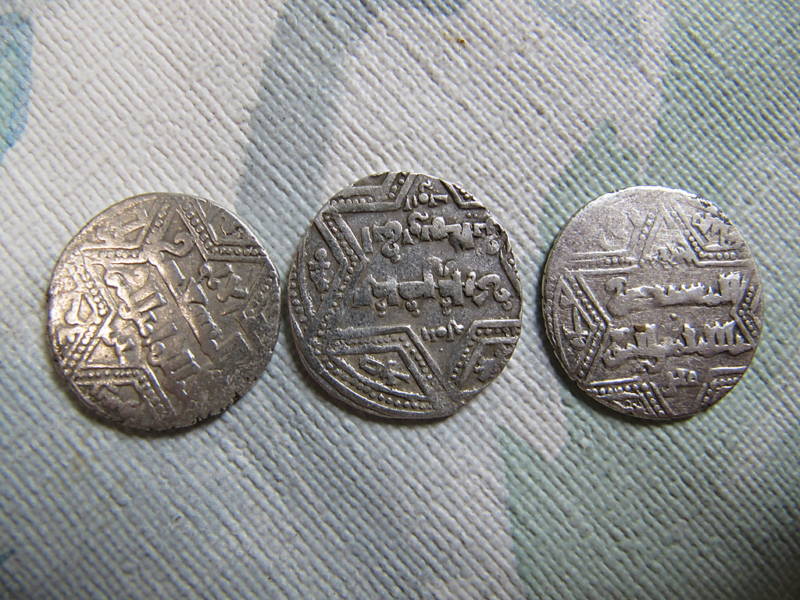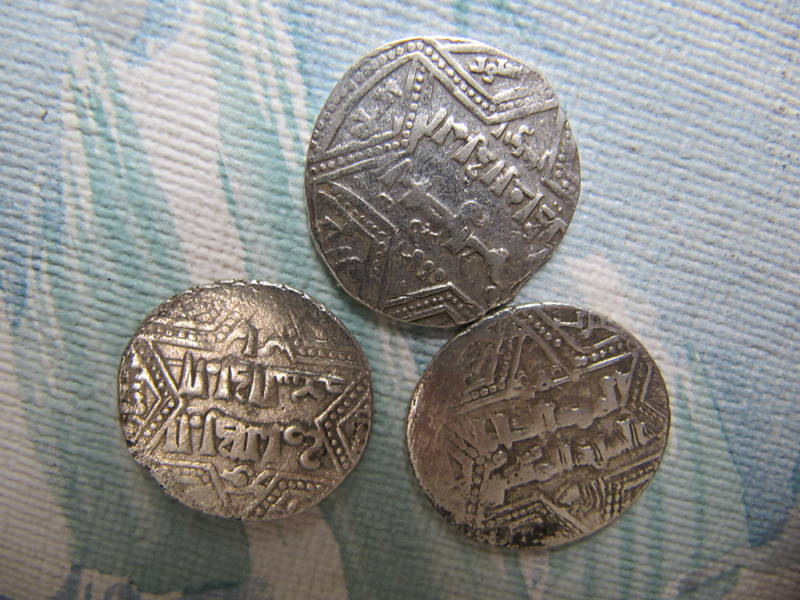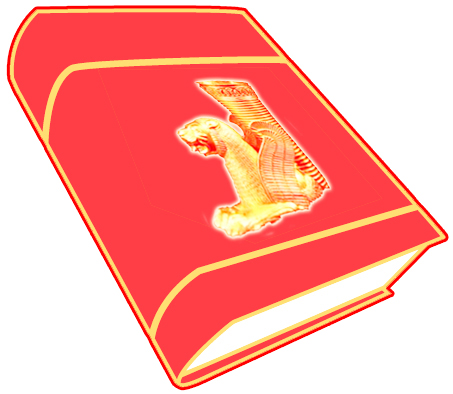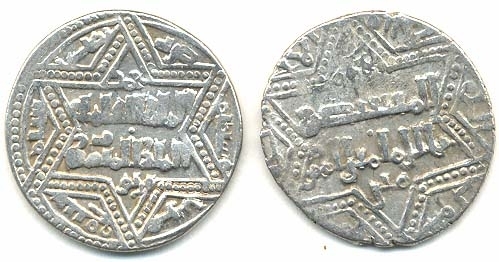
THE KURDISH DYNASTY AYYUBIDS 12TH Ė 13TH AD
Home †|††DestpÍk††|††Ana Sayfa

THE AYYUBIDS WERE OF HADHBANI KURDISH ORIGIN. THE FAMILY ACHIEVED IMPORTANCE IN THE SERVICE OF THE ZANGID,
FOR WHOM THEY CAMPAIGNED IN EGYPT. AFTER SEVERAL YEARS OF INTENSE STRUGGLES, SALADIN OBTAINED CONTROL
OF EYGPT IN 1169 AND TWO YEARS LATER OVERTHREW THE FATIMID CALIPH. EGYPT WAS LOST TO THE MAMLUKS BY 1249,
AND MOST OF THE SYRIAN PRINCIPALITIES DISAPPEARED DURING THE MONGOL INVASIONS.
THE AYYUBIDS COINED EXTENSIVELY IN ALL THREE METALS. SILVER DIRHAMS BECAME SOMEWHAT DEBASED UNDER THE LATER RULERS.
THEY ARE EXTREMELY ABUNDANT, AS ARE SMALLER FRACTIONAL SILVER PIECES, STRUCK FROM SMALLER DIES WITH ABBREVIATED LEGENDS
When the First Crusade defeated the Fatimid Caliphs and captured Jerusalem in 1099 AD, people in Egypt and Syria gradually decided that the Fatimids were too weak to rule anymore. One of their generals, Saladin (Salah ad-Din ibn Ayyub in Arabic), took over control from the Fatimids and founded the Ayyubid dynasty (ai-YOU-bid).
Saladin
Saladin was Kurdish, from Tikrit in northern Iraq. He came to Egypt in 1168 as an assistant to his uncle, who was a
general and then became the vizier of the last Fatimid caliph. After Saladinís uncle died the next year,
Saladin took power for himself. In 1173 Saladin's brother Goranshah conquered Yemen, in the Arabian Peninsula,
which gave Saladin control of trade from India through the Red Sea. He was a very successful
general who followed the Mamluk generals Zangi and Nureddin in taking back most of the territory
that had been lost to the First Crusade. He won back Jerusalem in 1187 AD.
Tomb of Saladin
Saladin was a Sunni Moslem, so he brought back Sunni worship to Egypt and Syria, even though the Fatimids had been Shiites.
He opened a series of madrasas, or schools, which helped to bring Sunni faith to the people, and also spread other
learning from Iran to Egypt and Syria. This also brought the Ayyubids closer to the Abbasid caliphs in Baghdad.
When Saladin died in 1193 AD, he was buried in Damascus, next to the great Umayyad Mosque there.
After his death, Saladinís sons and relatives broke up his empire so they could each have their own small
kingdom to rule. There were small kingdoms at Damascus, Aleppo, Hims, Hamat, and Diyar Bakr.
But the Ayyubid sultans of Egypt were the richest and so they mostly controlled all the smaller kingdoms.
The later Ayyubids bought Turkish and Mongol slaves to be their army rather than fighting themselves.
These slaves were called the Mamluks. But little by little the Ayyubid sultans had less and less power
and the Mamluks got more and more power. Finally in 1250 AD the Mamluks took over Egypt entirely.
By 1260 most of the other Ayyubid kingdoms were also taken over by the Mamluks.

